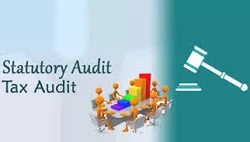Financial Statements of Fuel Dealers
The nature and extent of disclosures required in the financial statements of fuel dealers are contingent upon the dealer’s individual circumstances.
However, some of the key disclosures that should be included include:
1. Significant accounting policies:
This includes a description of the accounting policies used by the dealer, such as the method used to value inventory and the method used to calculate depreciation.
2. Contingent liabilities:
This includes any liabilities that are not yet due, but that may become due in the future. For example, if the dealer has a contract to purchase fuel at a fixed price, and the price of fuel goes down, the dealer may have a contingent liability for the difference between the market price and the fixed price.
3. Related party transactions:
This includes any transactions between the dealer and related parties, such as directors, officers, or major shareholders.
4. Off-balance sheet arrangements:
This includes any arrangements that are not reflect on the balance sheet, but that may have a material impact on the dealer’s financial position.
For example, if the dealer has a guarantee on a loan, this would be an off-balance sheet arrangement.
5. Critical accounting estimates:
This includes any estimates that are used in the preparation of the financial statements, such as the estimated useful life of assets or the estimated amount of bad debts.
6. Events after the balance sheet date:
This includes any events that have occurred after the balance sheet date, but that have a material impact on the financial statements.
For example, if the dealer has declared bankruptcy after the balance sheet date, this would be an event after the balance sheet date.
These are just some of the key disclosures that should be includ in the financial statements of fuel dealers. The specific disclosures that required will vary depending on the specific circumstances of the dealer.
In addition to the above, fuel dealers should also consider disclosing any other information that is material to the understanding of their financial statements. This could include information about the dealer’s business, its financial condition, or its future prospects.
The disclosures should be made in a clear and concise manner so that users of the financial statements can understand the information that is being presented. The disclosures should also be consistent from year to year so that users can track changes in the dealer’s financial position over time.
To visit: https://www.mca.gov.in/
For further details access our website: https://vibrantfinserv.com

